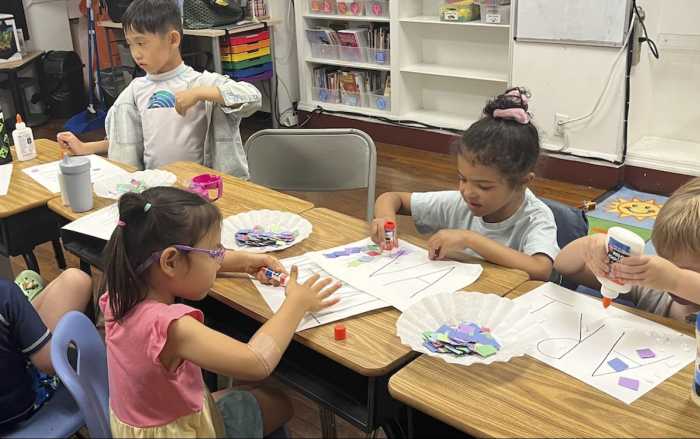
Teaching Kids How to Identify and Avoid Scams
Scams are on the rise, and one of the most vulnerable groups being targeted is kids. It’s, unfortunately, becoming more common for parents to hear stories of how scammers hacked a kid’s accounts, and it has a lot to do with how sophisticated scammers have gotten. In this new digital age, parents must be vigilant and educate their children about social media platforms and staying safe against strangers, and now we can all add scammers to the mix. We’re going to break down how to begin teaching kids to be aware of online scams and share some tips on how we can all avoid scams, kids and parents included.
Types of Scams and What Kids Should Know
First things first, what is a scam or scammer? Let your kids know that scams are essentially just ways for people to steal from you, whether money or personal information; these things should never be provided to strangers or strange sites, for example, sites that are not well-known or reputable, or that ask for personal information without a good reason. This brings us to our next point: educating children on the types of scams that exist today.
Online Scams
Most kids, if not all, can regularly be found scrolling online on social media platforms and can quickly come in contact with a scammer or a scam at any given time. Parents should be aware of and educate their children on three online scams: phishing, fake websites, and fake online offers.
Phishing
Cloudflare defines phishing as “an attempt to steal sensitive information, typically in the form of usernames, passwords, credit card numbers, bank account information, or other important data in order to utilize or sell the stolen information.” This can come in the form of direct messages with fake or suspicious links attached, accounts claiming to be representatives from a particular site you use, or emails claiming to be reaching out to “help” users retrieve accounts or help with online orders. If it seems suspicious, it likely is.
Fake Websites
Fake websites are, unfortunately, becoming more common these days. These sites mimic popular shopping sites but are actually designed to steal your credit card information. They often look very similar to the sites they try to emulate and can even appear at the top of a Google search. We suggest making sure the web address is correct. While they often look very similar to a real site, you can prevent being scammed by simply checking to see if there is a misspelling in the name or any additional characters that look like they don’t belong.
Fake Online Offers
Fake online offers often sound way too good to be true, and while, as adults, they may be easy to spot, kids can see the words “free” or “discount” and quickly give out their information. Again, these offers often mimic a site or may look like a small shop, but they are just working as ploys to get your child’s information.
Phone Scams
Beware of phone scams, which are a common method of stealing information. Scammers may call pretending to be someone important, and if they keep you on the line long enough, they can obtain important information. Nowadays, scammers are making phone calls and sending text messages with fake links or posing as politicians or people you know to retrieve important information or your money.
In-Person Scams
Be cautious of in-person scams, which can take the form of individuals directly approaching you to request money or masquerading as salespeople while attempting to sell counterfeit or fake products.
There are, unfortunately, so many ways for people to become victims of theft these days, and while it can be overwhelming to try and navigate through everything that’s potentially out there, starting the conversation on what theft can look like with your family can make everyone more aware and alert moving forward.
If you’d like additional information on other potential risks that could be out there, we suggest watching this video on the 10 Common Internet Scams and How To Avoid Them posted by macmost.com. This video shares a lot of great information on potential scams that can affect children and adults today.
Spotting a Scam and Next Steps
So, what’s the best way for children or anyone to spot a scam? The biggest red flag is when scammers create a sense of urgency. If someone contacts your family claiming there’s a problem or a prize, pressuring you to act immediately, telling you to pay in specific ways, let kids know that the best thing to do is to not respond or interact with them as they are likely scammers. Let your kids know that they should come to you or tell an adult what’s happening so that the appropriate next steps can be taken.
If your kids are at risk of being scammed on social media, it’s important to know how to report these scams on the platforms where they occur. Each social media platform has its own reporting system, usually found in the settings or help sections. By reporting these scams, you can help protect others from falling victim to the same tactics.
All scams can also be reported to the Federal Trade Commission by heading to reportfraud.ftc.gov. Parents can report scams, a company, or unwanted calls to the FTC. They will follow up with ways to protect yourself and your family, and they then share your report with law enforcement partners that will help with investigating everything further.
Tips on Avoiding Scams
The Federal Trade Commission (FTC) provides valuable information for families dealing with various online scams. They suggest blocking unwanted calls and filtering text messages, avoiding sharing personal or financial information in response to unexpected requests, and being cautious with emails or text messages from businesses.
Additionally, they advise not clicking on any suspicious links, resisting pressure to act immediately, and being cautious about payment methods. The FTC also encourages individuals to talk to someone they trust in case of a potential scam.
The biggest tip we can give is to start a dialogue with your children about the risks of online scams. They are, unfortunately, a new norm, and the best thing families can do is be educated and remain vigilant.
Psst… check out our Guide to Staying Safe Online For Parents and Families.













